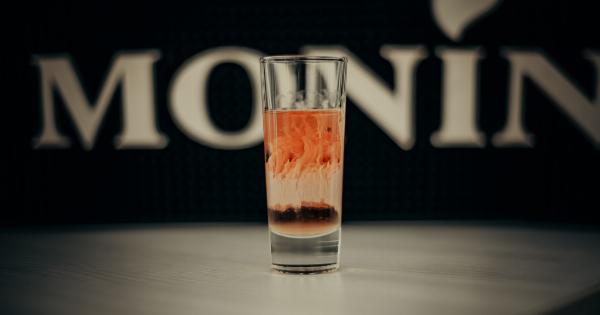Hydration and electrolyte balance are crucial for maintaining optimal health and well-being.
Proper hydration ensures the body’s various systems function efficiently, while electrolyte balance is essential for overall fluid balance, nerve function, muscle contraction, and several other critical bodily processes.
The Importance of Hydration
Water is essential for life. It comprises around 60% of our body weight and plays a vital role in numerous physiological functions. Adequate hydration is crucial for:.
Regulating Body Temperature
The body uses sweat as a natural cooling mechanism. By evaporating from the skin, sweat helps regulate body temperature.
However, excessive sweating, such as during intense physical activity or in hot weather, can lead to dehydration if fluids are not replenished.
Enabling Proper Digestion
Water is crucial for breaking down food and aiding in the absorption of nutrients during the digestion process.
Insufficient hydration can lead to digestive problems, constipation, and hinder the body’s ability to absorb essential vitamins and minerals.
Supporting Kidney Function
The kidneys play a vital role in filtering waste products from the blood and excreting them in the form of urine.
Adequate hydration helps support kidney function by ensuring optimal blood flow and preventing the development of kidney stones and other urinary tract issues.
Promoting Cardiovascular Health
Proper hydration helps maintain blood volume and ensures the heart can effectively pump blood throughout the body. Dehydration can strain the heart and lead to increased heart rate, decreased blood pressure, and other cardiovascular complications.
Effects of Dehydration
Dehydration occurs when the body loses more fluid than it takes in. Mild to moderate dehydration can cause symptoms such as:.
Thirst
Thirst is the body’s way of signaling the need to replenish fluids. It indicates that you are already dehydrated to some extent and should consume water or other hydrating beverages.
Dry Mouth and Dry Skin
Insufficient fluid intake can lead to dry mouth and dry skin. These symptoms may be accompanied by a sticky feeling in the mouth and decreased urine output.
Fatigue and Dizziness
Lack of proper hydration can result in feelings of fatigue, weakness, and dizziness. The body’s energy levels and overall functionality are compromised when it doesn’t have enough water to sustain vital processes.
Headaches and Difficulty Concentrating
Dehydration can cause headaches and impair cognitive function, making it challenging to concentrate, focus, and perform daily tasks efficiently.
The Role of Electrolytes
Electrolytes are minerals that carry an electric charge and are essential for maintaining fluid balance and proper cell function. The key electrolytes in the body include sodium, potassium, calcium, magnesium, chloride, and phosphate.
Importance of Electrolyte Balance
Electrolyte balance is crucial for several bodily functions, including:.
Maintaining Fluid Balance
Electrolytes, particularly sodium and potassium, help regulate the distribution of water throughout the body. They ensure that cells are adequately hydrated and prevent excessive fluid retention or dehydration.
Nerve Function and Muscle Contraction
Electrolytes play a vital role in transmitting nerve signals and facilitating muscle contraction. Imbalances, especially in potassium, sodium, and calcium, can lead to muscle cramps, spasms, and irregular heart rhythms.
Facilitating Nutrient Absorption and Waste Removal
Electrolytes help transport nutrients into cells and facilitate waste removal. They support proper digestion and nutrient absorption in the gastrointestinal tract and assist in excreting waste products from the body.
Common Causes of Electrolyte Imbalances
Several factors can lead to electrolyte imbalances, including:.
Poor Diet
A diet lacking in nutrient-rich foods can result in electrolyte imbalances. Excessive consumption of processed foods high in sodium and low in potassium can upset the delicate balance of electrolytes in the body.
Excessive Sweating
Prolonged periods of intense physical activity, working in hot environments, or excessive sweating due to fever can lead to electrolyte imbalances. When you sweat, especially profusely, you lose both water and essential electrolytes.
Medications and Medical Conditions
Some medications and medical conditions, such as diuretics, laxatives, kidney disorders, and gastrointestinal illnesses, can affect electrolyte levels.
It is important to consult with a healthcare professional if you are on medications or have any underlying medical conditions.
Staying Hydrated and Maintaining Electrolyte Balance
Here are some tips to help you stay hydrated and maintain a balanced electrolyte status:.
Monitor Your Fluid Intake
Paying attention to how much water you consume throughout the day is crucial for maintaining hydration. Aim to drink about 8 cups (64 ounces) of water daily, or more if you engage in intense physical activity or are in hot weather conditions.
Include Electrolyte-Rich Foods in Your Diet
Incorporate foods rich in electrolytes into your diet. Fruits such as bananas, oranges, and watermelon are excellent sources of potassium.
Leafy greens, nuts, and seeds contain magnesium, while dairy products and fortified plant beverages provide calcium.
Choose Hydrating Beverages
While water is the best choice for staying hydrated, you can also opt for hydrating beverages such as coconut water, sports drinks, and electrolyte-infused water. These options replenish both fluids and essential electrolytes lost through sweating.
Stay Mindful During Exercise or Physical Activity
If you engage in prolonged or intense physical activity, ensure you hydrate properly before, during, and after. Sip on water or a sports drink to replenish fluids and electrolytes lost through sweating.
Listen to Your Body
Pay attention to your body’s signals and drink when you’re thirsty. Thirst is a clear sign that your body needs water and that you may already be dehydrated.
Conclusion
Hydration and electrolyte balance are crucial for overall health and well-being. Proper hydration supports various bodily functions such as thermoregulation, digestion, and kidney function.
Electrolyte balance ensures fluid distribution, nerve communication, and muscle contraction. By consuming enough water, eating electrolyte-rich foods, and being mindful of fluid intake during physical activity, you can maintain optimal hydration and electrolyte levels for optimal health.































